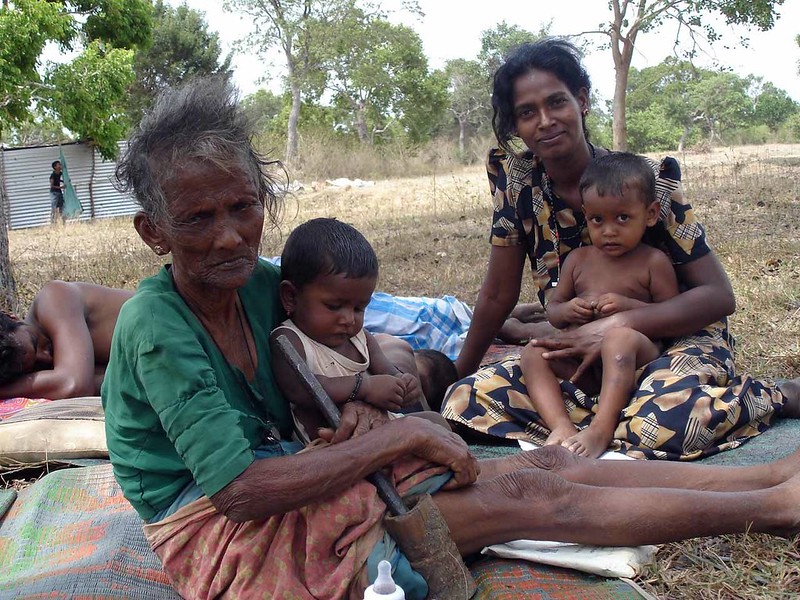
(Photo Credit: trokilinochchi)
Over a decade has passed since the Mullivaikkal massacre but “Tamils remain heavily discriminated against by a state that has yet to reckon with its violent past,” writes Visvajit Sriramrajan for The Diplomat.
“The war may have drawn to a close, but the island’s minority Tamils continue to be discriminated against severely by the majoritarian government, which has been increasingly emboldened in its subjugation of Tamils since the rise of Gotabaya Rajapaksa to power following the country’s 2019 presidential election.”
“In Tamil-majority districts, the end of the war has not been synonymous with the withdrawal of troops. Sri Lanka’s Northern and Eastern provinces continue to see high levels of militarisation, with 16 of the Army’s 19 divisions stationed there.”
“Police violence is also rampant and disproportionately affects Tamils. Demonstrators demanding answers to the whereabouts of their abducted children or the return of their ancestral lands are told to clear out without notice. Tamils are reprimanded for commemorating their deceased.”
“The burning of the Jaffna Public Library in 1981 by a Sinhalese mob, which saw the destruction of countless works of Sangam literature, palm leaf manuscripts, historical documents and other priceless books, was not an isolated incident. The cultural genocide of Tamil heritage must not be regarded as solely of the past, with Tamil statues being defaced as recent as 2020 by Sinhala Buddhist civilians who enjoy impunity from vandalism, property demolition and homicide of Tamils as granted by the Sri Lankan government.”
“Tamils also struggled to recover from the 2011 floods, which most greatly affected the Trincomalee, Batticaloa and Ampara districts…Today, the government’s neglect of its minority Tamil population remains unchanged, with the Rajapaksa regime paying no heed to the ruination of Tamil agricultural lands as a result of heavy shelling by the Sri Lankan Army.”
"In many ways, Tamils are just as marginalised as they were back in 2009. From 1956 to the present day, the government's advocacy of Sinhala supremacy has stayed static."
“The Mullivaikkal massacre was one of the most gruesome pogroms in history, yet the persecution of Tamils did not cease when it did, nor does it show signs of stopping anytime soon. Ethnic conflict in Sri Lanka cannot be solved domestically; the country’s minorities have attempted this persistently over the past decades with little success. Rather, Tamils require an international mechanism.”
“Until the world recognises the suffering of Tamils and upholds justice through fair and egalitarian policy, the Tamil homeland will remain shrouded in an air of premeditated misery.”
Read the full article here.
We need your support
Sri Lanka is one of the most dangerous places in the world to be a journalist. Tamil journalists are particularly at threat, with at least 41 media workers known to have been killed by the Sri Lankan state or its paramilitaries during and after the armed conflict.
Despite the risks, our team on the ground remain committed to providing detailed and accurate reporting of developments in the Tamil homeland, across the island and around the world, as well as providing expert analysis and insight from the Tamil point of view
We need your support in keeping our journalism going. Support our work today.
For more ways to donate visit https://donate.tamilguardian.com.

